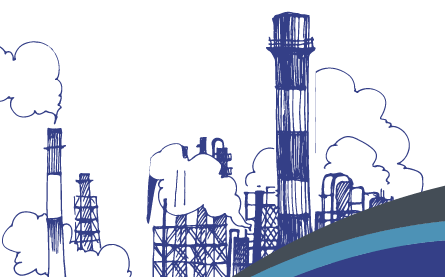
In recent years, Vietnam has reached remarkable achievements in the energy sector, an important pillar of socio-economic development. However, these achievements have also brought about significant impacts on the environment and society. Financial institutions financing energy projects play an important role in preventing and minimizing the negative impacts through their socio-environmental protection policies. They are useful tools to enhance community participation in the project development process; and as a result, minimize the future negative impacts. This study aims to provide evidence for the potential risks in terms of environmental, social, and legal aspects of two coal-fired power projects – An Khanh and Quynh Lap 1. It reviews the risks from the socio-environmental protection policies of banks that had or have been considering financing these coal-fired power plants.
In recent years, Vietnam has reached remarkable achievements in the energy sector, an important pillar of socio-economic development. However, these achievements have also brought about significant impacts on the environment and society. Financial institutions financing energy projects play an important role in preventing and minimizing the negative impacts through their socio-environmental protection policies. They are useful tools to enhance community participation in the project development process; and as a result, minimize the future negative impacts.
This study aims to provide evidence for the potential risks in terms of environmental, social, and legal aspects of two coal-fired power projects – An Khanh and Quynh Lap 1. It reviews the risks from the socio-environmental protection policies of banks that had or have been considering financing these coal-fired power plants.
The analysis points to non-performance loan risk and reputation risk. When these projects are under construction that violates laws and regulations or fail to have the consent of community and the support of local authorities. Environmental and social risks are considered as one of risks for banks.
Recommendations for financial institutions who are or have intention of financing coal-fired power projects in general and in particular, these two coal-fired power projects in the case study are as follows:
- Ensuring the compliance with the committed international principles concerning environmental and social aspects in investment.
- Considering the financial, legal, and reputational risks when financing projects that are high environmental and social risks such as coal-fired power
- Disclosing Environmental and Social commitments policies on the website to ensure the accessibility and the effectiveness of grievance mechanisms of the community.
- Commercial banks in Vietnam should consider the risks of projects that potentially have negative impacts on society and environment to align with the orientation in no trade-off between economic growth and environment, culture, and other social aspects.
———————————————————————————————————————————————————————————-
Fair Finance Vietnam (FFV) is the creation of the collective efforts of several civil society organizations, including the Center for Water Conservation and Development (WARECOD), the Center for Education and Empowerment of Women (CEPEW), and Oxfam in Vietnam. They are currently active in the field of environmental protection and community development for sustainable development.
For more information, please contact:
Hoang Thu Trang, Programme Officer, Oxfam in Vietnam